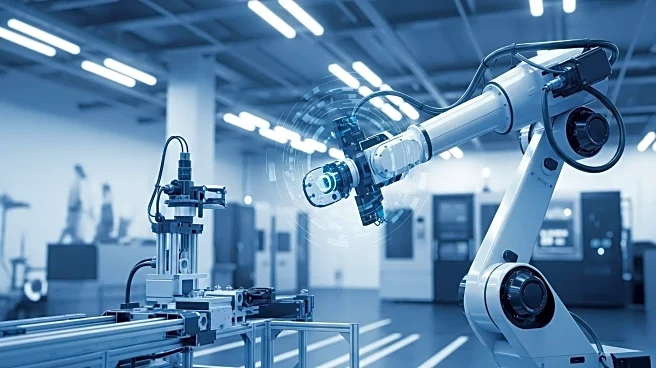What's Happening?
Manufacturers are increasingly moving away from traditional hours-based maintenance scheduling to a more precise cycle-based tracking system using Manufacturing Execution Systems (MES). This shift allows for more accurate maintenance timing by monitoring real-time process parameters such as temperature, pressure, and voltage. The integration of MES with predictive maintenance strategies enables manufacturers to detect potential failures before they impact production. MES historian databases facilitate critical predictive maintenance processes, including high-low boundary alerts, trend analysis, pattern matching, and sum of evidence techniques, which can incorporate AI tools for enhanced detection capabilities.
Why It's Important?
The adoption of MES for predictive maintenance represents a significant advancement in manufacturing efficiency and reliability. By leveraging real-time data and AI tools, manufacturers can prevent unexpected equipment failures, thereby reducing downtime and maintenance costs. This approach not only enhances operational efficiency but also extends the lifespan of machinery and tools. Companies that implement these systems stand to gain a competitive edge through improved production reliability and cost savings. The shift towards predictive maintenance reflects a broader trend in the industry towards data-driven decision-making and smart manufacturing practices.
What's Next?
As more manufacturers recognize the benefits of MES-based predictive maintenance, it is likely that the adoption of such systems will continue to grow. Companies may invest in upgrading their existing infrastructure to support these advanced monitoring capabilities. Additionally, the integration of AI and machine learning into MES systems could further enhance predictive maintenance strategies, offering even more precise and reliable maintenance scheduling. Stakeholders, including equipment manufacturers and software developers, may collaborate to develop more sophisticated tools and technologies to support this transition.
Beyond the Headlines
The move towards predictive maintenance using MES also raises considerations around data management and cybersecurity. As manufacturers collect and analyze vast amounts of data, ensuring the security and privacy of this information becomes paramount. Additionally, the reliance on AI and machine learning introduces ethical considerations regarding decision-making processes and the potential for bias in predictive algorithms. These factors will need to be addressed as the industry continues to evolve.









